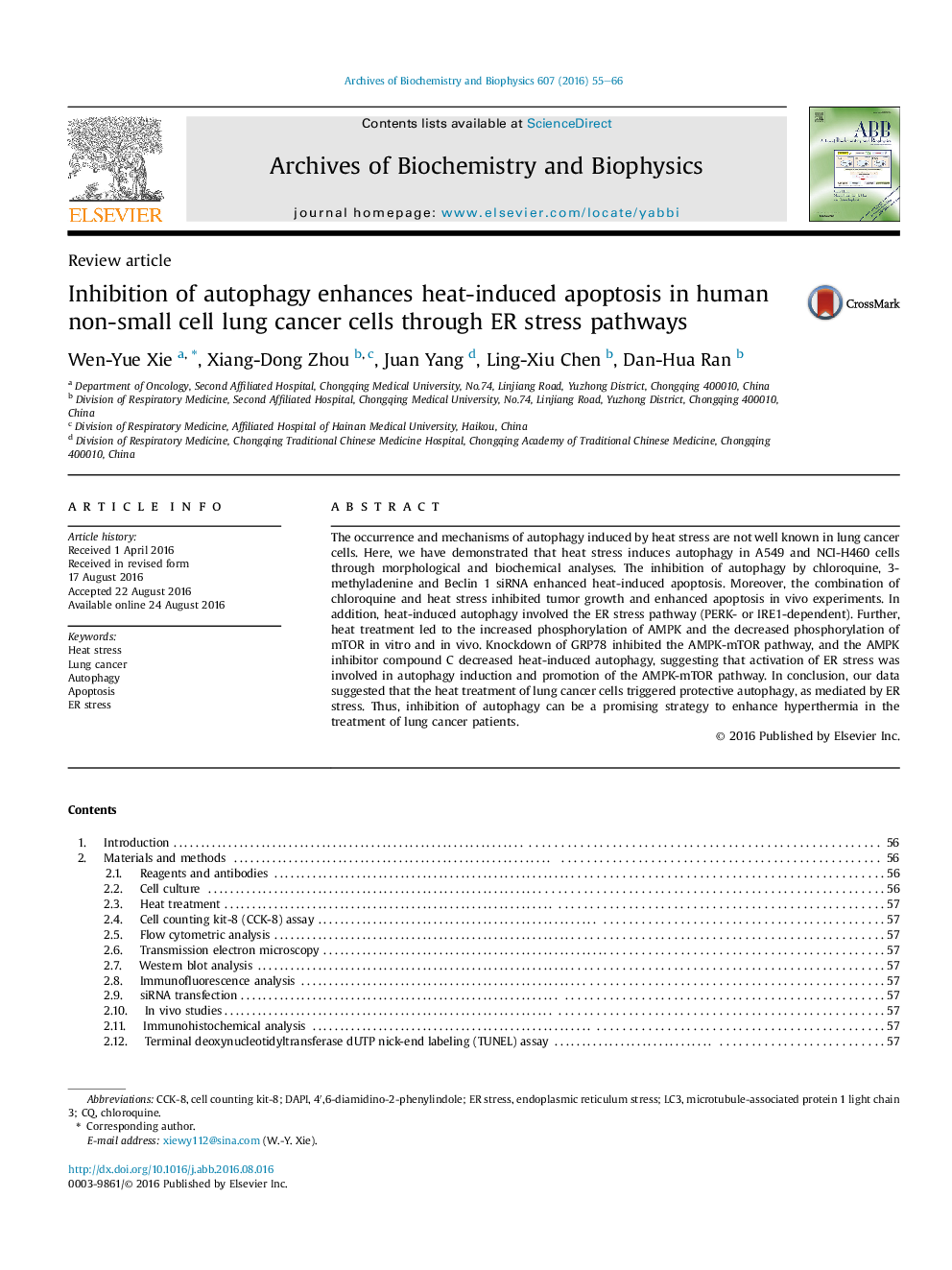| Article ID | Journal | Published Year | Pages | File Type |
|---|---|---|---|---|
| 1924681 | Archives of Biochemistry and Biophysics | 2016 | 12 Pages |
•Heat stress induces autophagy activation in non-small-cell lung cells through morphological and biochemical analysis.•The role of autophagy under heat stress can protect lung cancer cells from cell apoptosis.•PERK and IRE-1 pathways were activated in lung cancer cells under heat stress in vivo and in vitro experiments.•AMPK-mTOR pathway is the downstream of ER stress in autophagy activation.
The occurrence and mechanisms of autophagy induced by heat stress are not well known in lung cancer cells. Here, we have demonstrated that heat stress induces autophagy in A549 and NCI-H460 cells through morphological and biochemical analyses. The inhibition of autophagy by chloroquine, 3-methyladenine and Beclin 1 siRNA enhanced heat-induced apoptosis. Moreover, the combination of chloroquine and heat stress inhibited tumor growth and enhanced apoptosis in vivo experiments. In addition, heat-induced autophagy involved the ER stress pathway (PERK- or IRE1-dependent). Further, heat treatment led to the increased phosphorylation of AMPK and the decreased phosphorylation of mTOR in vitro and in vivo. Knockdown of GRP78 inhibited the AMPK-mTOR pathway, and the AMPK inhibitor compound C decreased heat-induced autophagy, suggesting that activation of ER stress was involved in autophagy induction and promotion of the AMPK-mTOR pathway. In conclusion, our data suggested that the heat treatment of lung cancer cells triggered protective autophagy, as mediated by ER stress. Thus, inhibition of autophagy can be a promising strategy to enhance hyperthermia in the treatment of lung cancer patients.
Graphical abstractFigure optionsDownload full-size imageDownload high-quality image (304 K)Download as PowerPoint slide
